To conclude this run of MRE articles, for the moment at least, I am moving forward to the XXXVII batch of US rations packed in 2017, writes Bob Morrison.
The MRE featured this month which I picked up in the summer of 2018 was, according to the date printed on the cardboard meal outer case or carton, packed in 2017 but from date stamps on the individual packaging for edible contents I was able to determine that most had been produced in late 2016.
As previously explained, a four digit system is used for dating foodstuffs with the first numeral being the last of the production year and the other three being the day of that year the foodstuff was made. In this case my Menu #1 main course, or entrée as the Americans call it, was marked 6362 meaning it came off the production line on 28th December 2016. The Cornbread, which for those who have not tried it is like a sweet sponge cake, was stamped 6344 showing it was baked on 10th December 2016 and the Vegetable Crackers carried the same date stamp, but the Cheddar Cheese Crackers snack pouch was stamped 7030 which tells us it was produced on 30th January 2017. Content-wise this MRE is not significantly different from the 2014 or XXXIV pack described in Part 7 so I do not plan to go through it in any great detail, but having eaten it all yesterday, I have to reiterate that I really do feel our cousins from across The Pond are getting more adventurous with their taste buds. The Chili With Beans would probably rate three fiery peppers out of four on the UK supermarket scale and, even though not particularly generous on the beef/carne count, was right up my street. The sachet of Cheese Spread, which looks artificially orange, was also much more flavourful than I remember it and when spread on the Vegetable Crackers (flavoured with carrot, celery, onion, red & green peppers and tomato) was really enjoyable even though it looked like it might make a good emergency Air Ident panel as I reckon that colour could be seen from the other side of Dartmoor. From published US Defense Logistic Agency material it can be determined that the MRE XXXVII contract was awarded on 21st October 2016 and scheduled for deliveries between January and December 2017. The award was split over the three prime suppliers with AmeriQual assigned 35%, SoPakCo 45% and Wornick 20% this time around. Projected quantity was 2.5 million cases (of twelve menus) and total contract value was $202,031,750 giving a unit price per MRE of $6.74, including accessories and Flameless Ration Heater. However the upturn in projected military operations, possibly caused in part by the return of significant numbers of US troops to Europe to reinforce the NATO Alliance in the light of Russian expansionism, saw an add-on contract requirement for 800,000 cases being announced in the spring of 2017.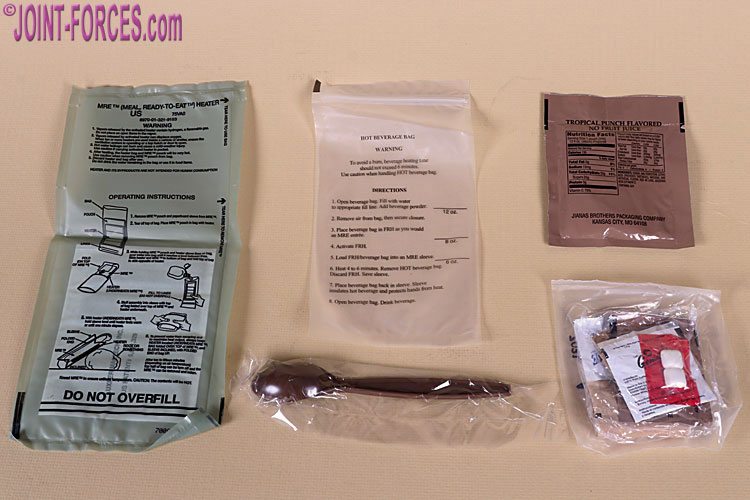
Flameless ration heater, measuring bag for beverage, beverage powder, accessory pack and spoon [©BM]
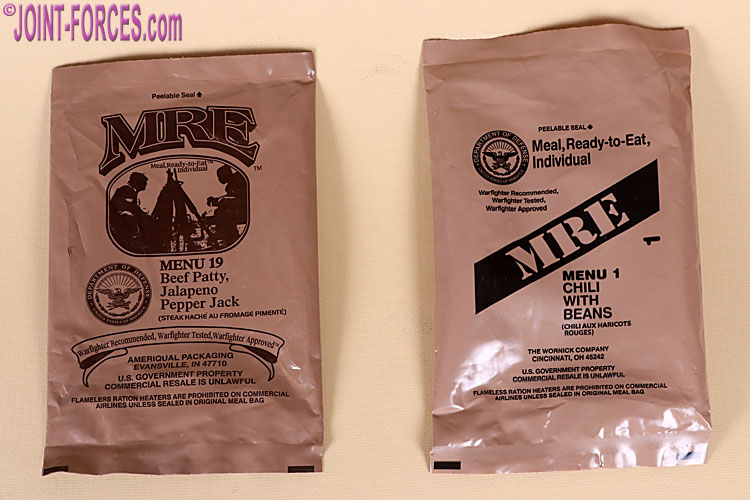
Two of three outer pouch designs introduced in 2008 – there is a slight shade difference between batches but all are darker than the earlier tan/beige pouch [©BM]
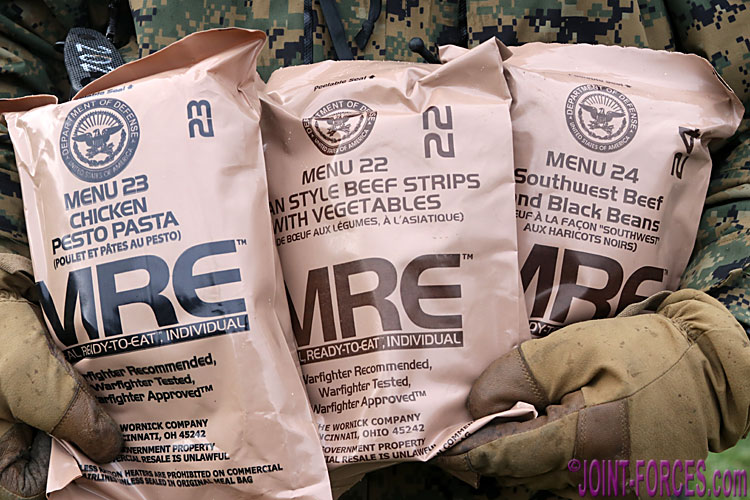
Three different Case 2 menus in third design post-2008 pouches held by a US Marine on TRIDENT JUNCTURE 2018 [©BM]
Right, that’s enough on the MRE topic for now as I have some Norwegian (REAL) and Polish (KADAR) ration items, mostly freeze-dried, to taste test. I will, however, take a look back at the associated US MARC (Meal Alternative Regionally Customized) once I have worked my way through the backlog of tasty treats and assuming nothing more exciting pops up first.
{ images © Bob Morrison }

The Cornbread is sweet and spongy – I was tempted to eat mine with Devon custard and a dollop of jam [©BM]
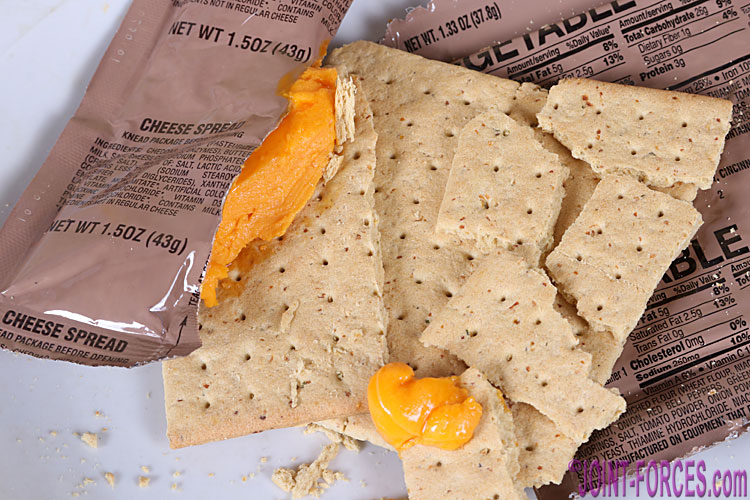
Cheese Spread and Crackers – both were very tasty and though cheese was processed I enjoyed it [©BM]
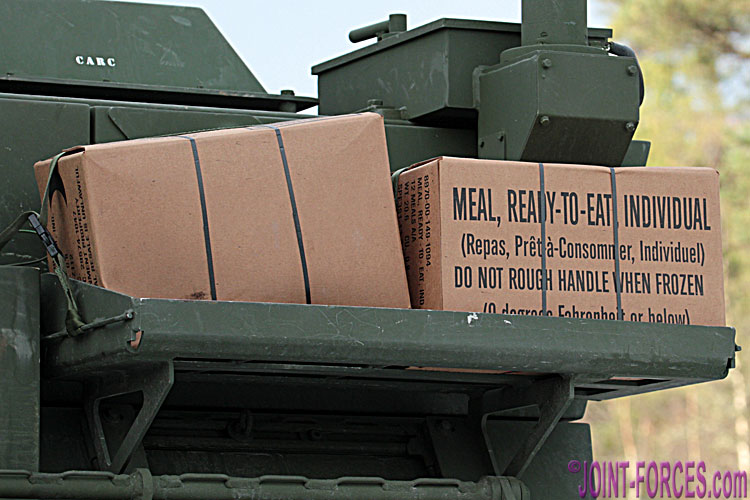
Two outer cartons of twelve MREs snapped on the side of a USMC LAV during TRIDENT JUNCTURE – as they were advancing to contact with Blue Forces this is merely a grab shot but should give a rough idea of how meals are packed [©BM]


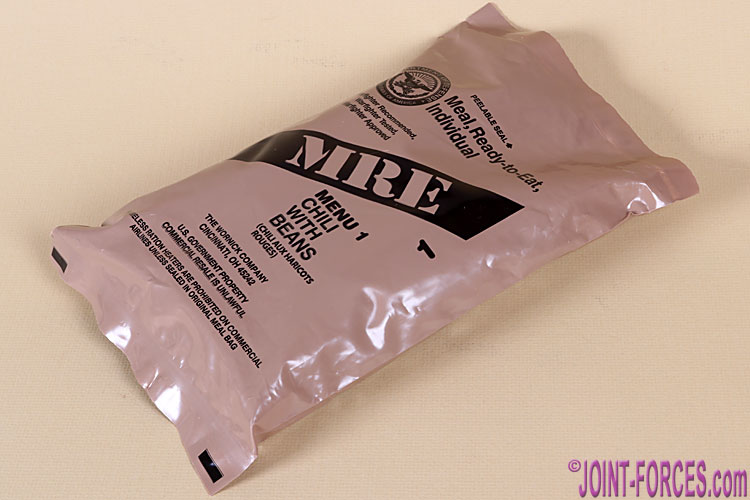
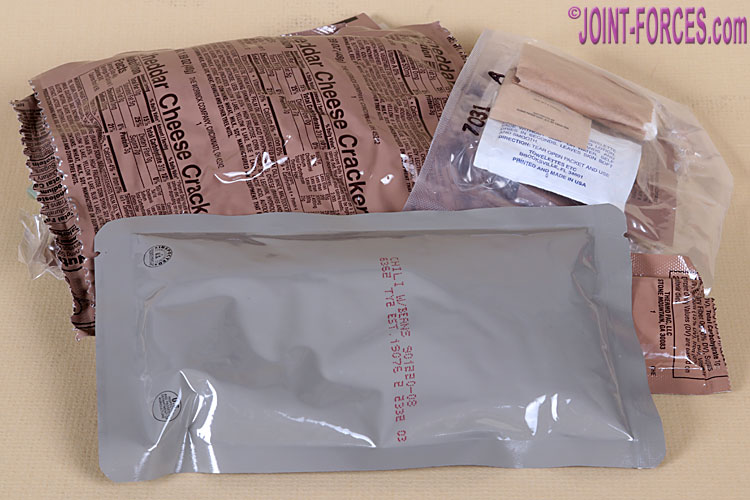
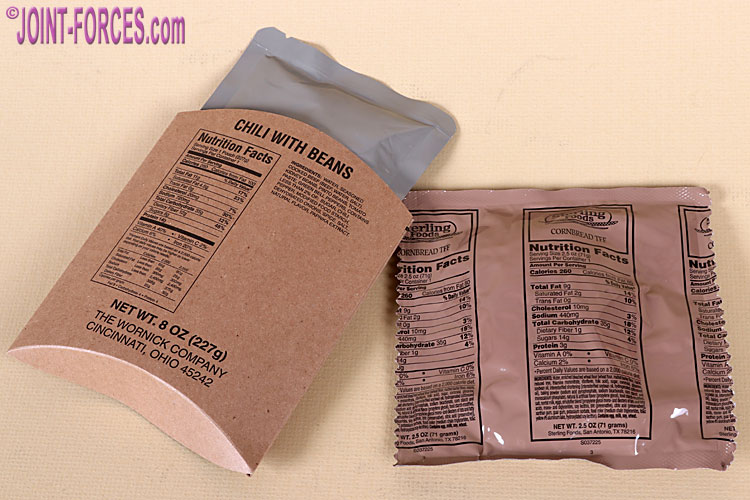

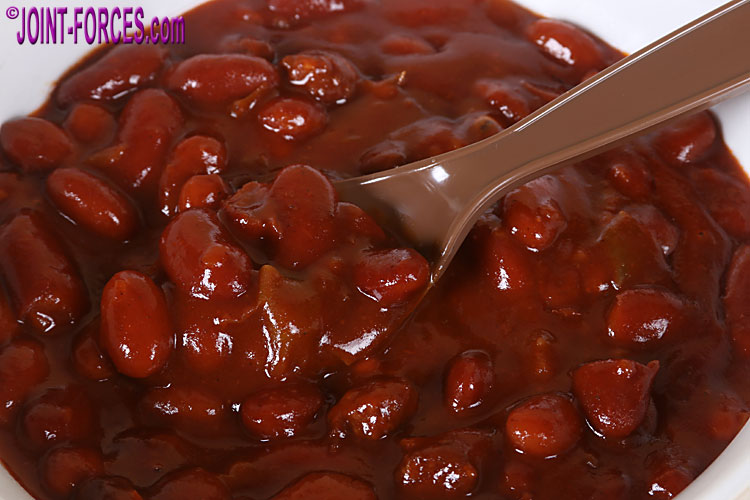
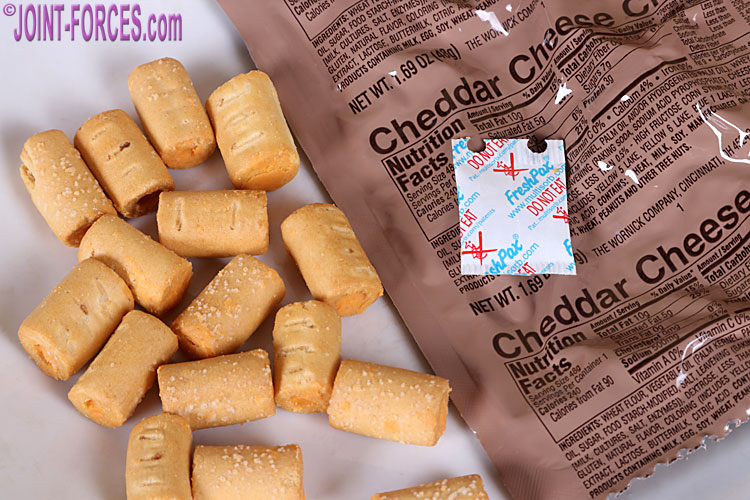












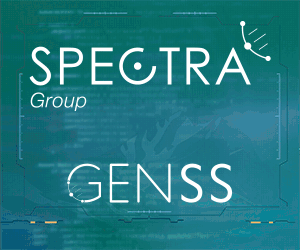


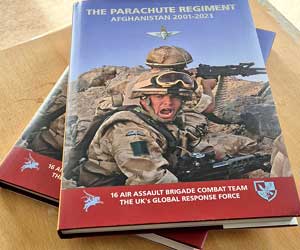
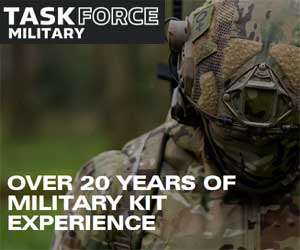

Pingback : FR41 ~ US MRE Part 9 ~ XXXVII Batch Update - Joint Forces News